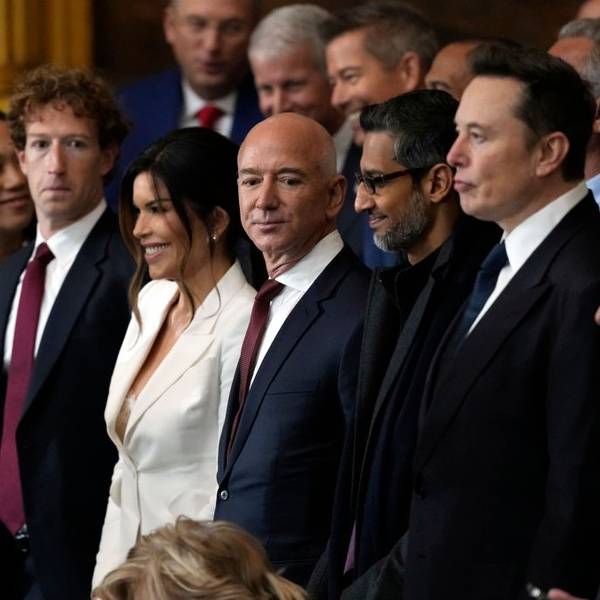Ten years after the recession, most Americans, including Baby Boomers, are still struggling with finances. The Wall Street Journal, cheerleader for capitalist-driven recoveries, noted that Millennials, Gen-Xers, and Boomers are all still poorer than in 2007. But the incredible prosperity of about 10% of the Boomers is beyond dispute, as the numbers below will show. Most of those lucky people are older whitemales.
Booming Economy? Yes, for the Richest 10%, Who Took 85 Percent of the New Wealth
The bottom 50%, which includes most of the indebted Millennials, saw their average net worth fall to about $8,000. That's the average wealth of people in many developing nations.
In the past eight years, the 1% gained $6.75 million each, the 2-10% gained $700,000 each, and the poorest 50% of American adults LOST an average of $3,000 each. The bottom 50%, which includes most of the indebted Millennials, saw their average net worth fall to about $8,000. That's the average wealth of people in many developing nations. Part of the reason is the refusal by employers to pay a living wage. The wages of America's poorest 50% have remained stagnant since the recession, continuing a 40 year trend.
Most Millennials Have No Net Worth -- or Worse
According to a Young Invincibles report, young adults who graduated college with student debt now have a median net worth of NEGATIVE $1,900. The College Investor calculates that the averageMillennial net worth for the Classes of 2010-17 runs into the NEGATIVE tens of thousands of dollars.
The "Deadbeat Millennial" Myth: Most Millennials Can't Even Afford an Apartment
Despite being better educated, Millennials are earning 20% less than Baby Boomers at the same age, in good part because "full employment" includes gig jobs that pay little more than half the wages of fulltime employees. In 2007 over 50 percent of college seniors had job offers waiting for them at graduation; ten years later fewer than 20 percent did. Planning for the future is generally out of the question. Two-thirds of 21- to 32-year-old Millennials have NOTHING saved for retirement.
As a result of all this hardship, more 25- to 29-year-olds live with their parents or grandparents than at any time in the past 75 years.
Rich White Boomer Individuals and Corporations have Redistributed the Profits from 75 Years of Prosperity
Writer Steven Brill describes the cunning ways of the well-positioned Boomers: "Ingenious financial and legal engineering turned our economy from an engine of long-term growth and shared prosperity into a casino with only a few big winners...They created exotic, and risky, financial instruments [that] separated those taking the risk from those who would bear the consequences...They were able to consolidate their winnings, outsmart and co-opt the forces that might have reined them in...The result is a new, divided America. On one side are the protected few - the winners - who don't need government for much and even have a stake in sabotaging the government's responsibility to all of its citizens...On the other side are the unprotected many."
The richest individuals and corporations have benefited from 75 years of public funding for the technologies that are now replacing working people with robots. Amazon depends mightily on our infrastructure; Apple on our phone innovations; Google on our Internet. All the 'modern' apps have their foundations in the basic research that is still largely funded by our tax dollars.
At the very least these companies should be paying their taxes, but Amazon paid NOTHING in 2017, and as of a year ago Apple and Google and Microsoft had tens of billions stashed away in overseas tax havens. At the very least these companies should be paying their taxes, but Amazon paid NOTHING in 2017, and as of a year ago Apple and Google and Microsoft had tens of billions stashed away in overseas tax havens.
So how do the big corporations spend their massive profits? A trillion dollars in stock buybacks and dividends to enrich a decreasing number of shareholders. And extreme payoffs to the job eliminators. Sam Pizzigati gives the example of Hunter Harrison, former CEO of railroad giant CSX, who received a $230 million pay package to streamline the company, partly by cutting 17,000 jobs.
What To Do?
The Department for Professional Employees estimates that nearly 10 million service industry jobs will be added in the next decade. These jobs, especially the 'caring' jobs of health care and social assistance, will be of the greatest importance to our aging population, and to a nation that is beginning to understand the value of human cooperation in the pursuit of a stable society. They should be implemented as fulltime living-wage jobs. The corporate recipients of 75 years of public support should pay for them.




